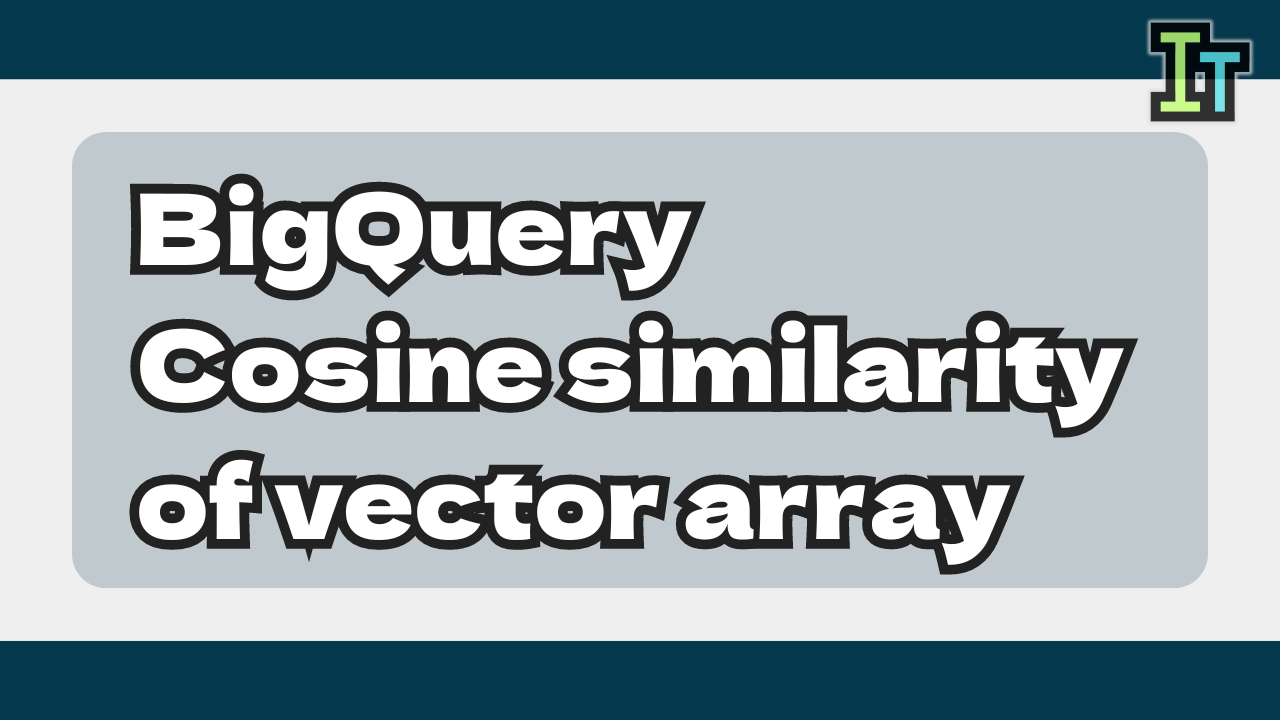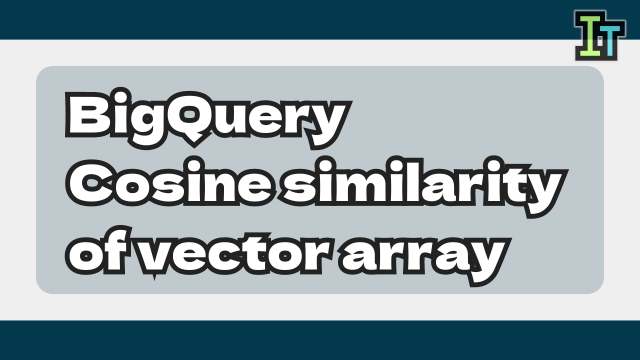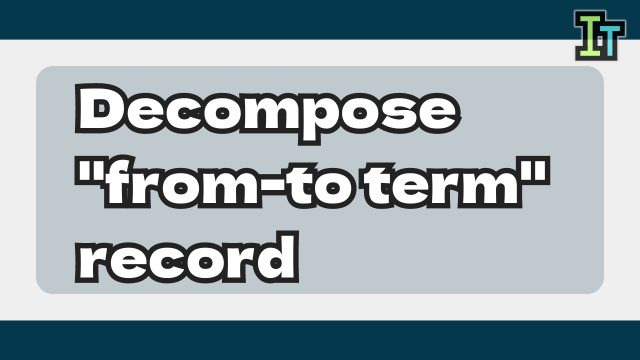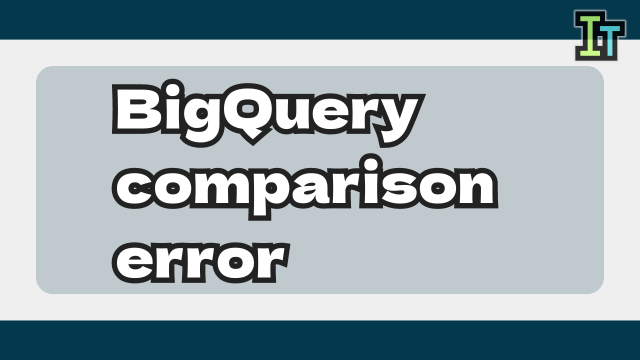
How can we calculate cosine similarity in BigQuery ?
BigQuery(BQ) is very useful for data analysis or processing.
It is good for handling huge data.
It returns summary result in short time.
BQ has one useful data format "array".
When we consider array as vector, we may want cosine similarity of vectors.
So how can we get cosine similarity ?
So today I introduce about "How to calculate cosine similarity of array in BigQuery".
What is cosine similarity


Cosine similarity is a measure of similarity between two vectors.
Cosine cos is one of the trigonometric functions.
It takes 1 in case of 0°, 0 in case of 90° and -1 in case of 180°.
So it means that we can get an angle if we know value of cosine.
And if an angle between 2 vectors is close to zero, it means 2 vectors are similar.
So the cosine is used as similarity.
Cosine similarity is a measure of similarity between two non-zero vectors of an inner product space.
Cosine similarity – Wikipedia
The formula of cosine similarity is below.





I remember that I used to learn it.
Prepare data


Before calculate it, we should prepare data.
In order to make array data, we can use the table which we create in previous topic.


You can add CREATE TABLE to SQL, and create table.
CREATE TABLE test.array_sample2
AS
SELECT
key,
ARRAY_AGG(val) as val_array
FROM test.array_sample
GROUP BY keyResult table
| Row | key | val_array |
|---|---|---|
| 1 | a | 1 |
| 2 | ||
| 3 | ||
| 2 | b | 2 |
| 4 | ||
| 5 | ||
| 3 | c | 3 |
| 2 | ||
| -1 |
We use this table to calculate cosine similarity.
How to calculate cosine similarity of array in BigQuery


In order to calculate cosine similarity of array in BigQuery, we should calculate product between elements of vectors.
SQL is below.
SELECT
t1.key AS key1,
t2.key AS key2,
(
SELECT
SUM(value1 * value2)/ SQRT(SUM(value1 * value1))/ SQRT(SUM(value2 * value2))
FROM
UNNEST(t1.val_array) AS value1
WITH
OFFSET
pos1
JOIN
UNNEST(t2.val_array) AS value2
WITH
OFFSET
pos2
ON
pos1 = pos2
) AS cosine_similarity
FROM
test.array_sample2 AS t1,
test.array_sample2 AS t2
ORDER BY
key1,
key2,
cosine_similarityIt decomposed array to each element bt UNNEST(array), and added order number by WITH OFFSET pos.
Then use pos as join key for multiplication of each element.
Result is below.
Result
| Row | key1 | key2 | cosine_similarity |
|---|---|---|---|
| 1 | a | a | 1 |
| 2 | a | b | 0.9960238411 |
| 3 | a | c | 0.2857142857 |
| 4 | b | a | 0.9960238411 |
| 5 | b | b | 1 |
| 6 | b | c | 0.3585685828 |
| 7 | c | a | 0.2857142857 |
| 8 | c | b | 0.3585685828 |
| 9 | c | c | 1 |
Vector a and b are similar. So similarity is high.
Vector c faces different direction. So similarity is low.
Conclusion


Today I explained about "How to calculate cosine similarity of array in BigQuery".
In order to calculate cosine similarity of array, we can check these following important pints.
- Decompose array by "UNNEST(array)"
- Add number to array element by "WITH OFFSET pos"
- Calculate cosine similarity by multiplication between each array element



Using UNNEST(array) is little bit complicated.











